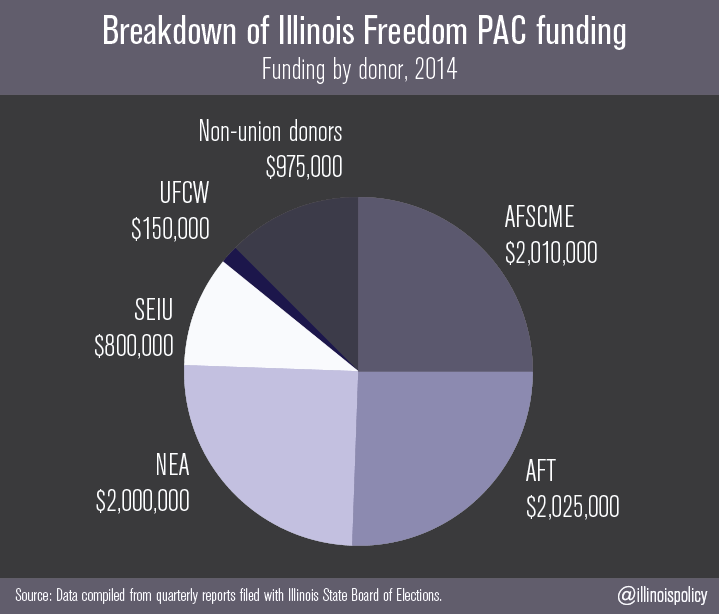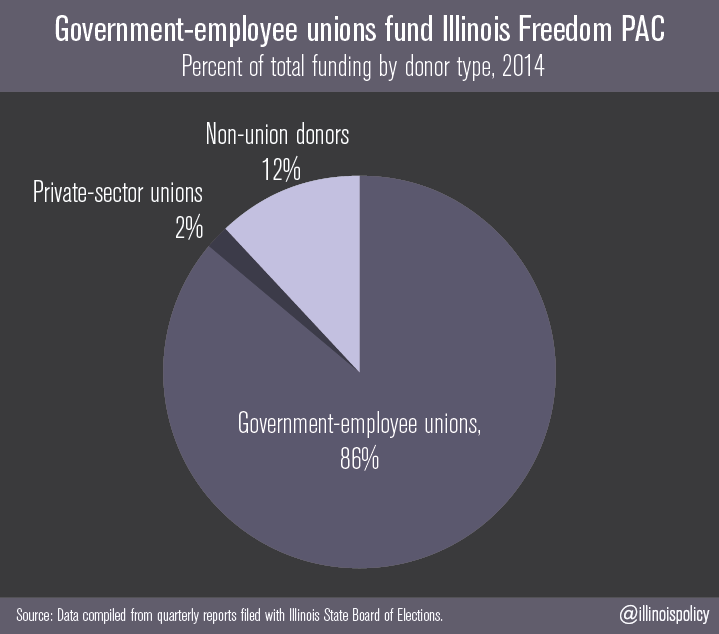Who’s behind Illinois Freedom PAC?
Anti-Rauner PAC got nearly 90 percent of its funding from government-employee unions
Now that the election has come and gone, we can finally turn on our TVs without seeing a barrage of political ads. But it’s worth taking a closer look at “Illinois Freedom PAC,” an organization that flooded the airwaves in opposition to Governor-elect Bruce Rauner.
Illinois Freedom PAC appeared to be a single-issue PAC, which popped up this election cycle only to attack Rauner. During the primary, its message was that Rauner couldn’t be trusted and was not fit to be governor.
So who was Illinois Freedom PAC, exactly? Fortunately, its finance reports – including a list of its main contributors – are now available through the Illinois State Board of Elections. The trail isn’t hard to follow: the overwhelming source of Illinois Freedom PAC’s money was government-employee unions.
The National Education Association, American Federation of Teachers and the American Federation of State, County, and Municipal Employees contributed approximately $2 million each to the PAC. The Service Employees International Union chipped in $800,000. The United Commercial and Food Workers contributed $150,000. Non-union groups, led by the Democratic Governors’ Association, gave $975,000. All told, out of a budget of just under $8 million, about $6.8 million came from government-employee unions.


But as much as the Illinois Freedom PAC was a vehicle for government unions to attack Rauner’s reputation, the group’s ads scarcely mentioned the unions’ real worry about Rauner: his willingness to challenge government unions’ power in Illinois. This is something those same unions were quite willing to talk about when they were addressing government employees, but when talking to the general public through TV ads, the unions spoke of just about everything but themselves and their role in the state.
That’s to be expected, as the general public likely wouldn’t support their position. The debate over union power cannot be put off forever though, and when the time comes to look at labor law reform, the people of Illinois should remember how government unions were willing to spend millions to try to change the subject.
